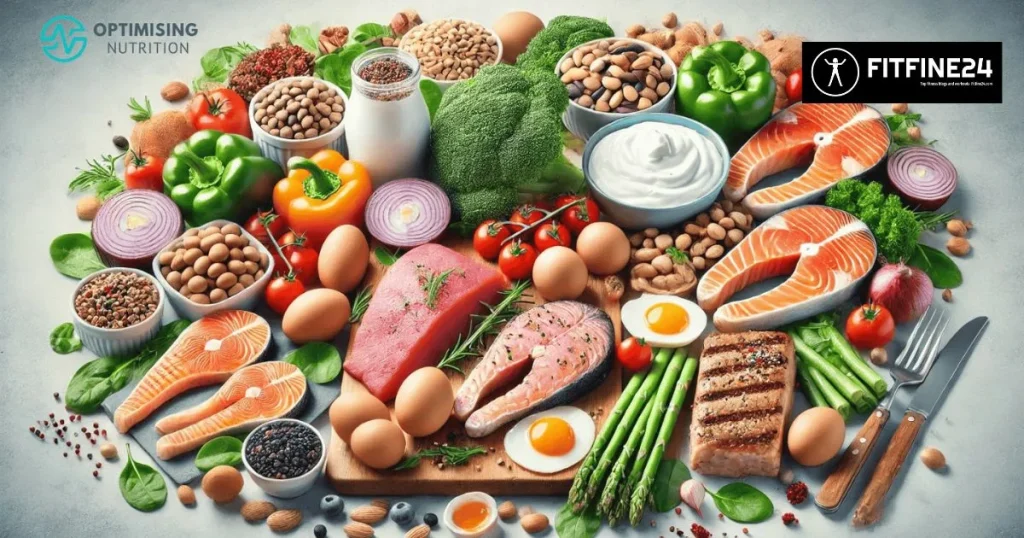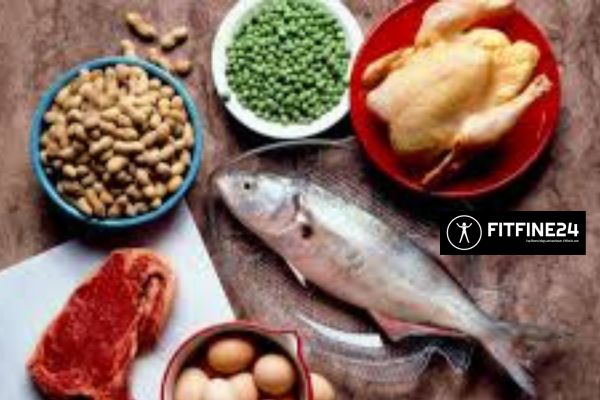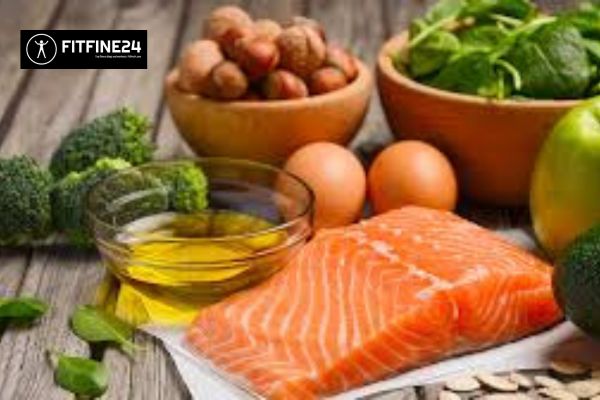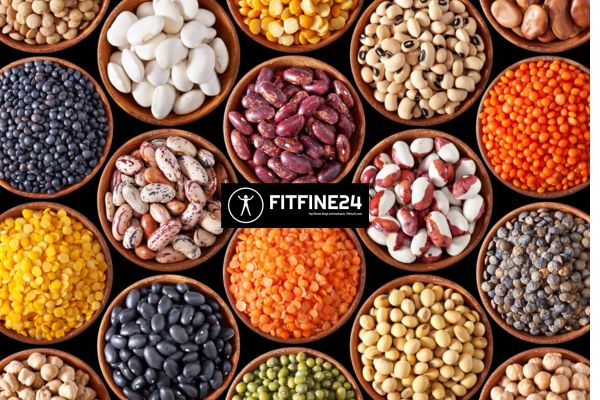Introduction
More than just a buzzword in the gym space for rent, protein is an important macronutrient that assists muscle mass maintenance and development as well as supports overall metabolism while also helping to keep you full all day long. So, if you are an athlete or a health enthusiast, this certainly means that you should have clear answers to all these questions but since it is your body’s fuel source, under the mattress information about intake can not hurt, right? Read on to know what this is and why it is gaining popularity; its advantages or types of protein can easily be incorporated into your meals.

Why Protein Is Trending At fitfine24
This is probably one of the most talked-about substances in health and wellness culture these days, and for good reason. Gone are the days when it was a dietary staple of bodybuilders—nowadays, it is an essential component in every well-balanced diet for everyone at any age or activity level. Why is a Star Here ago_orientation_landscape_plugin_declaration?
Building and Repairing Muscles: This is composed of amino acids that are the building blocks for muscles. Repairs are important for muscle growth,muscle building supplements and the ideal intake will vary with resistance training or other types of workouts.
Weight Control: Their high content is also an ideal way to control weight since protein induces greater satiety and can help you curb your calorie intake. This also has a high thermic effect, which refers to the amount of calories that your body burns to digest protein as opposed to fats and carbs.
Better Metabolism: This eating helps boost the metabolism of a person along with lean muscle mass, which is responsible for burning calories properly throughout your day and yields excellent results over time [1].
Better Snacking: People are increasingly turning to torch snacks as an alternative to sugary or carb-heavy options. Whether it be bars, shakes, and other snacks in between meals to help with keeping your energy level up.

Protein: The Good It Does For Your Body
Protein kick start weight loss pillsImage Benefits-protein Top is highly imperative for a fit and healthy life. Applying protein to your diet can provide you with some of the following features:
Supports Muscles: This is essential for repairing and building muscle, which makes it especially important to include in the diet of people who strength train or do challenging workouts.
Helps in Weight Loss: This is a hunger hormone, especially ghrelin, which makes your body feel full longer and helps you control that size.
Strengthens Immunity: The amino acids in this are essential for immune function and building antibodies that fight infections.
Healthy Skin and Hair: This is important for the production of collagen—which maintains skin elasticity—and strengthens hair.
All About Protein and Sources of Proteins
This is not a “one size fits all” kind of molecule. This can help you in selecting the best sources for consumption:
Whey Protein: Whey is a dairy derivative and an extremely popular form of protein powder since it digests quickly in the body (returning your muscles to their optimal state most effectively after working out). It contains high amino acid content, so it is quickly absorbed and quick to recover from exercise.
Casein: Derived from milk, casein is slow-acting—a good option if you want to eat an evening snack before bed or help heal sore muscles overnight.
Plant: Pea, Soy, and Hemp are good for vegetarians or vegans. It has some of the important amino acids and is good for anyone who suffers from lactose intolerance.
Egg: Eggs are one of the most complete sources of all nine essential amino acids. Egg protein powder is a perfect dairy-free option.

Whole Foods: This also exists in some whole foods such as lean meats (chicken, turkey, beef), fish (salmon, tuna), beans and lentils (be aware of portion sizes), nuts, and seeds. Including these in your food can help you maintain a proper intake.
How Much Protein Do You Need?
The requirement varies depending on your age, level of activity, and fitness objectives. Daily intake should ideally look like this:
0.8 grams per kilogram of body weight for an inactive adult
Moderate Activity Level: 1.0-1.2 grams per kilogram
Athletes / Bodybuilders: 1,5-2.2 per kg — depending on intensity
For instance, if you weigh 70 kg and workout regularly, then aiming for an intake of around 105–140 grams/day could be ideal.
8 Ways to Include More in Your Diet
It is very easy to include high protein low fat foods. So here are 11 simple and fun ways to be more protein-forward in your life:
Breakfast: Examples include eggs, Greek yogurt, or smoothies. It gets your metabolism going and keeps you full until the next meal.
Nuts, seeds, or bars are the best snacks. Choose ones with no or limited added sugars to keep it healthy.
Include Salad: Add grilled chicken, beans, or tofu to salads. All the better to reduce a light salad in balance and make it into an entire meal!
Powders: Stir some protein powder in your oatmeal, or just pour it into your pancakes and baked goods. It makes it very simple to get more in without messing around with your standard meals.
Rich dairy: Cottage cheese, milk, and cheese are incredibly high in protein, making them great options. They can be used to make smoothies or eaten as is.
Amino Acid Soup for Post-Workout Recovery Did you know our bone broth is high in protein?
If you exercise regularly, then consuming after your workout is essential to building muscle. Research indicates that 20 to 30 grams consumed within the first half hour after a workout may help in increasing muscle synthesis, which can result in faster recovery and increased strength. To make the most of your recovery, pair a banana or whole wheat toast.
Common Protein Myths Debunked
Mums and Co.—A Community for Mumpreneurs |This is a biggie, but along with popularity comes some misinformation too. Some myths to clear up:
Myth 1: High Diets Are Bad for Your Kidney Forhealthy individuals, a high-fat diet does not appear to harm the kidneys. Please note that people who already have kidney problems will need to get advice from a health professional if they plan on adding more protein.

That leads us to… Myth 2: ALL THE PROTEIN for MAXIMUM MUSCLE GROWT. This is important but so are strength and resistance training to build muscle! The use of the protein will not simply sprout muscle without exercise.
Another Myth Dispelled: All Essential Amino Acids Are Found ONLY in Animal Sources—FALSE as well. Although animal sources do contain all of the essential amino acids we need, plant-based protein combinations such as rice and beans can provide a full (complete).
Conclusion
It is no secret that protein—a crucial macronutrient in the human body—has several functions, such as better sleep and weight loss shakes to boot. Learn the benefits and how to enjoy shakes in your daily diet so you will be able to improve the nutritive profile of what you are ingesting and, consequently, reach better results from doing workouts.

